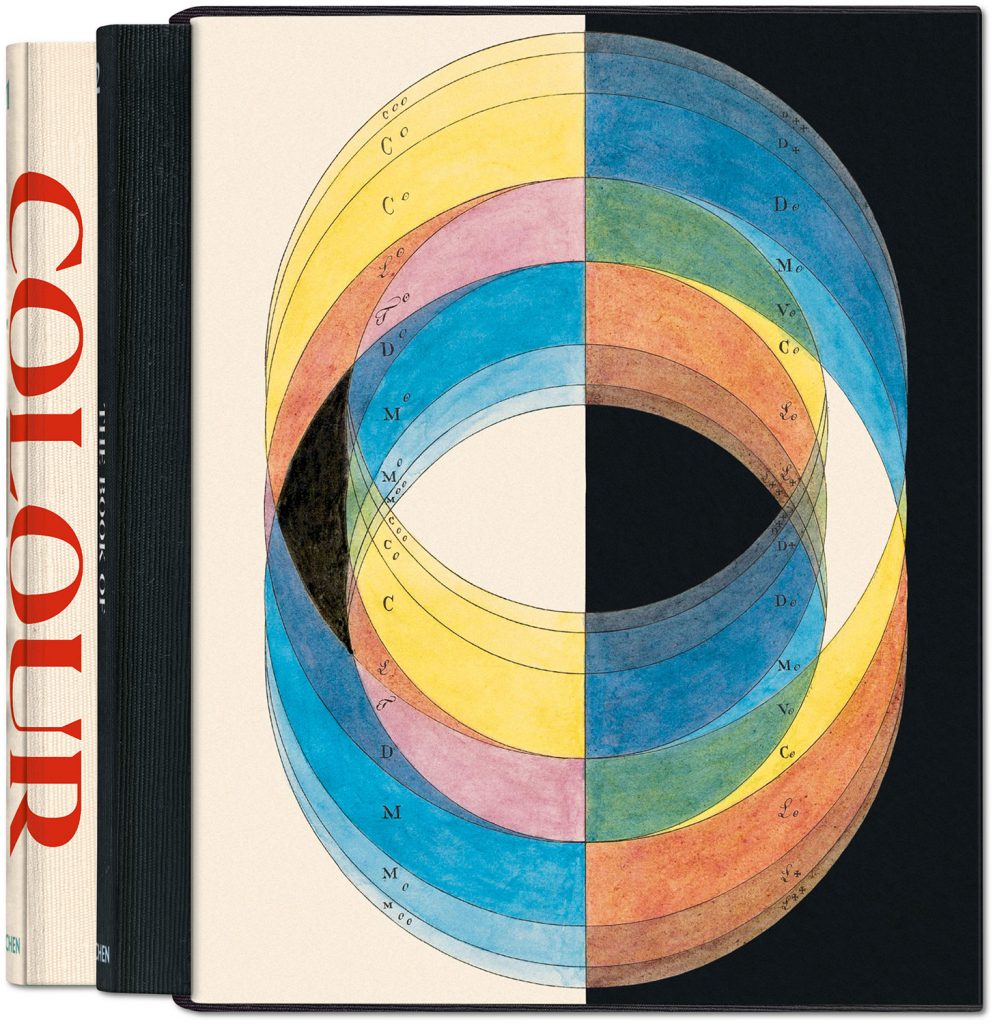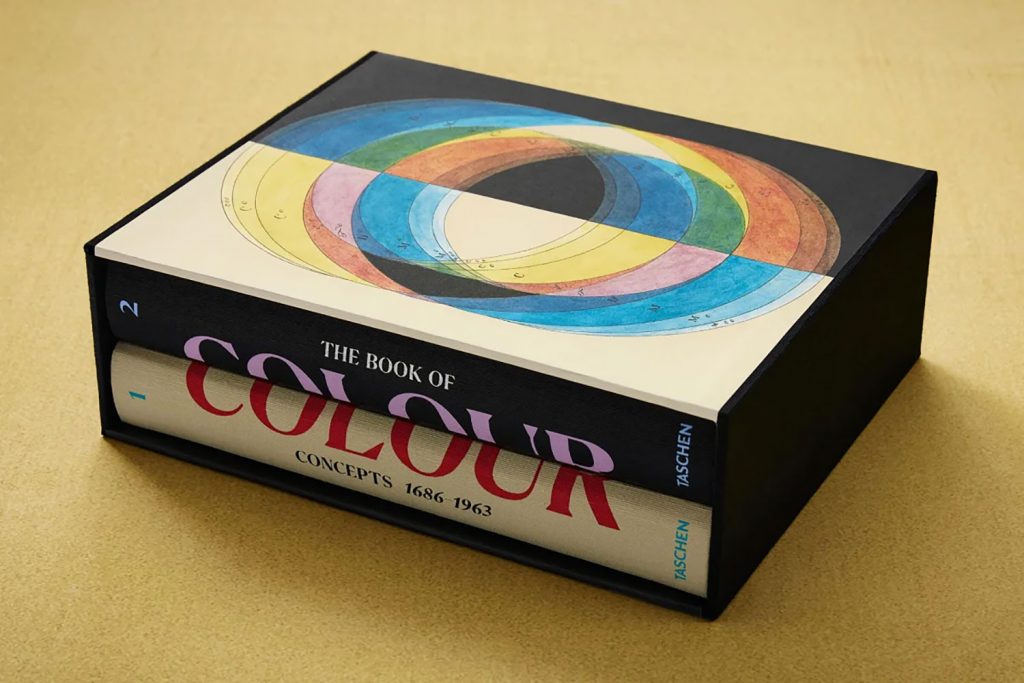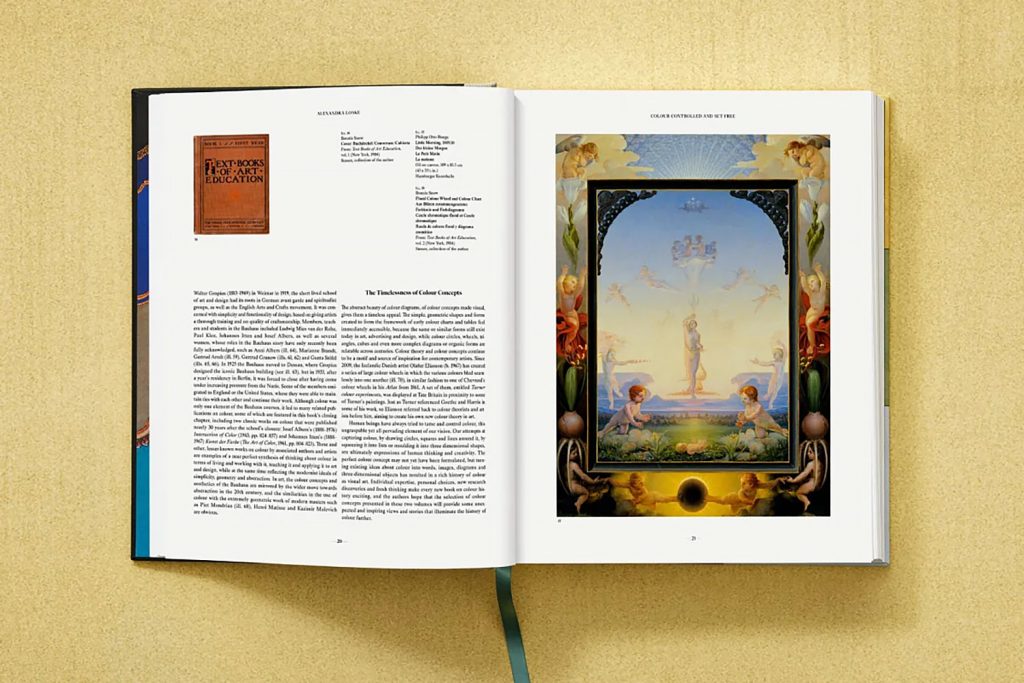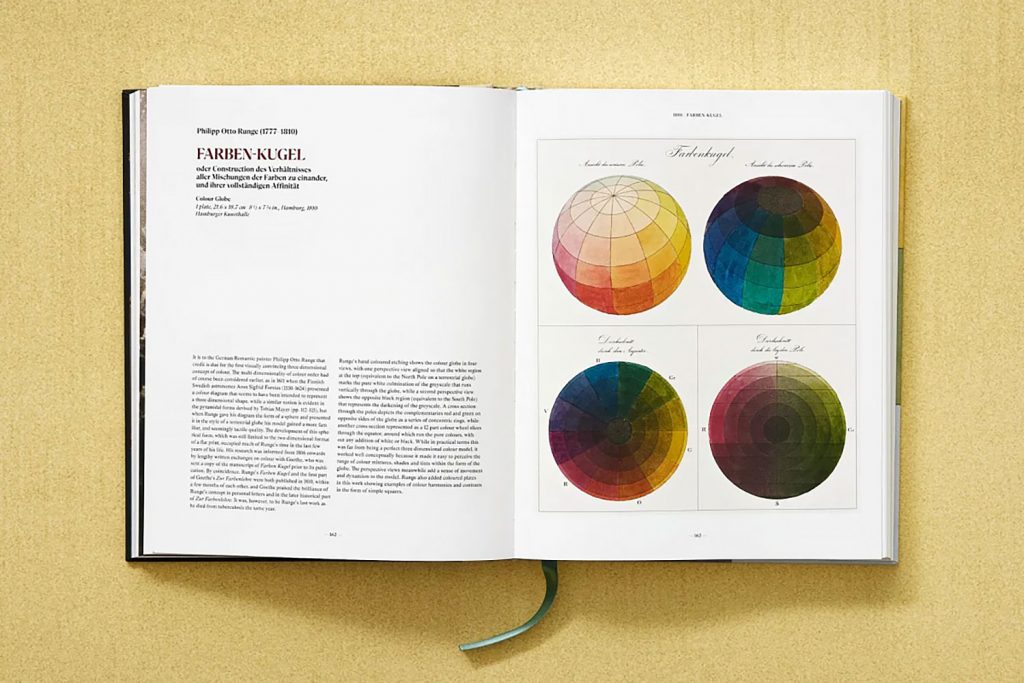
Photo: Taschen Verlag
A journey through the history of colours
“The Book of Colour Concepts” takes the reader on an exciting cultural and historical journey through the history of colour, from the first cave paintings in prehistory to the complex colour systems of the modern age. Each chapter of the more than 800-page, lavishly designed double volume describes in detail the cultural, psychological and aesthetic significance of colours for mankind and their development over time. With rare illustrations and colour plates, the book explores in particular the function and significance of colours in different cultures, how our perception of colour has changed over time and what formative influence they have had on science, religion, art, design and fashion, for example.

Photo: Taschen Verlag
The art and science of colours
The book brings together over 65 rare works from all over the world and thus offers a unique insight into the history of colour theory. The artistic illustrations of colour circles and spheres, tables and diagrams bear witness not only to the artistic beauty of colour theory, but also to the scientific precision with which scholars and artists have attempted to fathom the essence of colour. The numerous illustrations shed light on the universal language of colour and illustrate the complex relationship between colour and perception. The lovingly designed pages of the book act like a window into the soul of colour and open our eyes to the infinite possibilities of its application and interpretation.

Photo: Taschen Verlag
The variety of colour gauges
The book’s outstanding contributions include not only classic texts such as Newton’s “Opticks” or Goethe’s “On the Theory of Colour”, but also lesser-known works such as Paul Klee’s “Bildnerische Form- und Gestaltungslehre” and Sanzo Wada’s Colour Studies (Haishoku Soukan), which present changing perspectives on the theory of colour. The variety of approaches presented – from spiritual colour systems to scientific classifications and artistic interpretations – shows how multifaceted the examination of colour can be. Particularly noteworthy is the inclusion of works by women, who have often led a shadowy existence in the history of colour theory. Their contributions, such as Mary Gartside’s innovative “colour spots” or Hilma af Klint’s visionary art, open up new perspectives on the relationship between colour and creativity.

Photo: Taschen Verlag
The cultural significance of colours
The carefully selected essays and analyses in “The Book of Color Concepts” offer not only an overview of the historical and cultural contexts of colour theory, but also in-depth insights into individual works. The texts make it clear how important colour is in our lives and how it can shape emotions, ideas and even social identities. Editors Alexandra Loske and Sarah Lowengard have succeeded in combining academic research with a lively narrative and, with significant support from Taschen-Verlag, have created a reference work that is both instructive and entertaining for anyone interested in the numerous and often hidden meanings of colour in our culture and history.
data
| Title | The Book of Colour Concepts (Eng. Orig. Title) |
| Editor | Alexandra Loske, Sarah Lowengard |
| Publisher | Taschen |
| Cover | Hardcover |
| Pages | 846 pages, over 1000 illustrations in colour |
| Language | German, English, French, Spanish |
| Dimensions | 24.3 x 30.4 cm |
| ISBN | 9783836595650 |
| Price | 150 € |
Further information
Further information on the book “The Book of Colour Concepts” (Advertising) can be found on the Taschen-Verlag website.
Compliance
The book was kindly made available to us by the publisher. The presentation and rating of HYPERMADE remains independent of this and is based solely on the content of the book.
